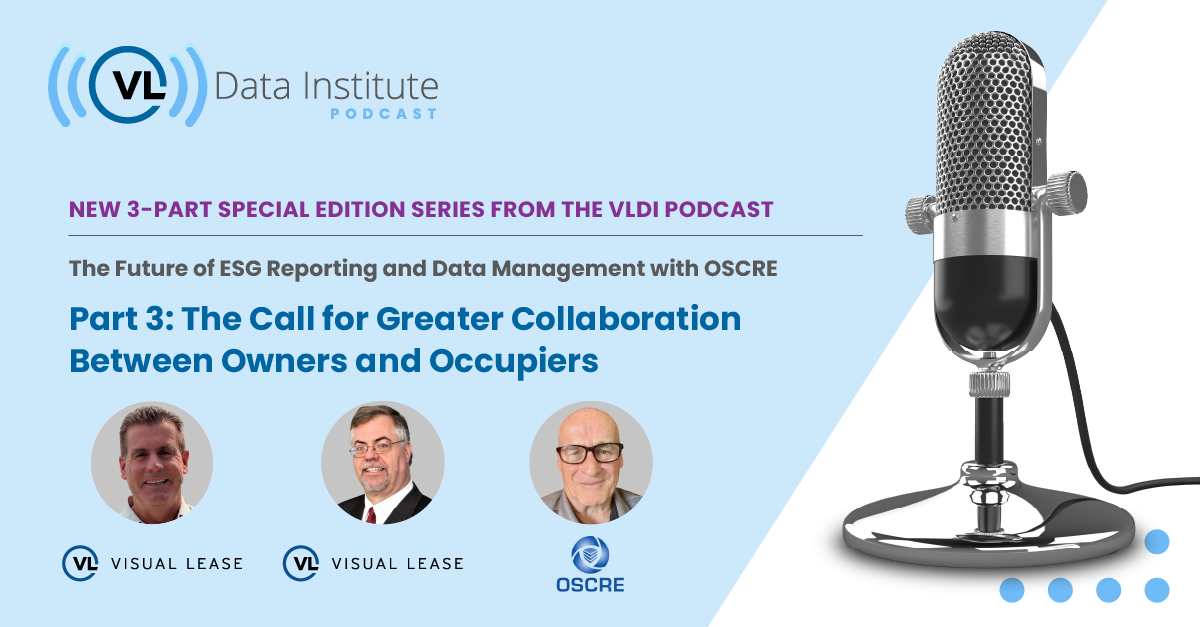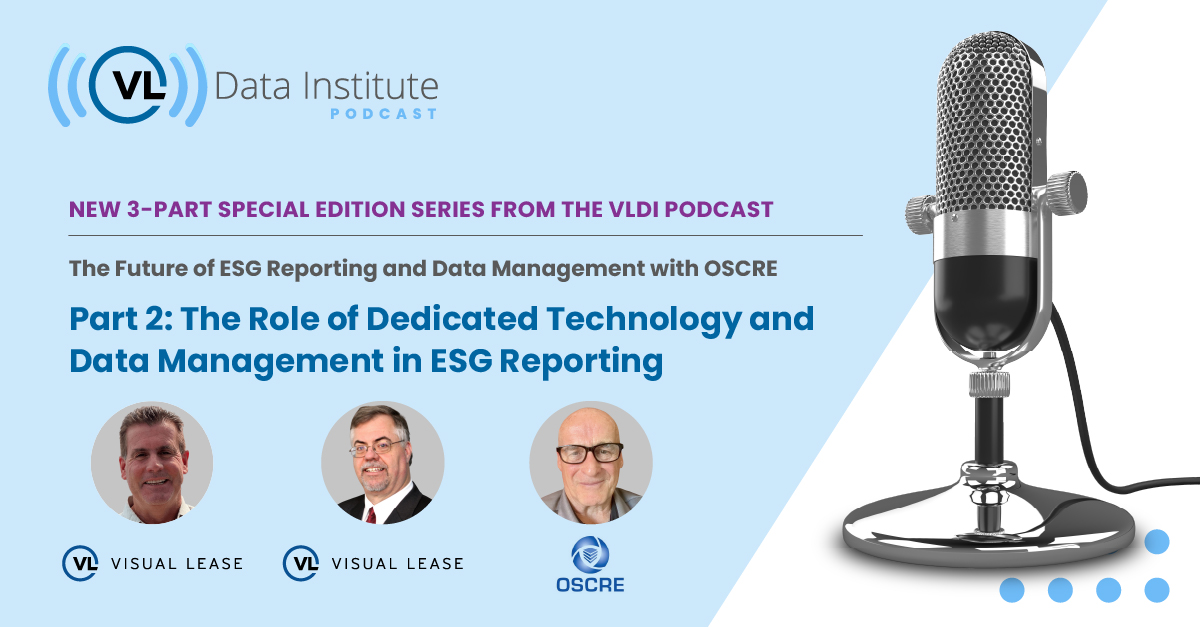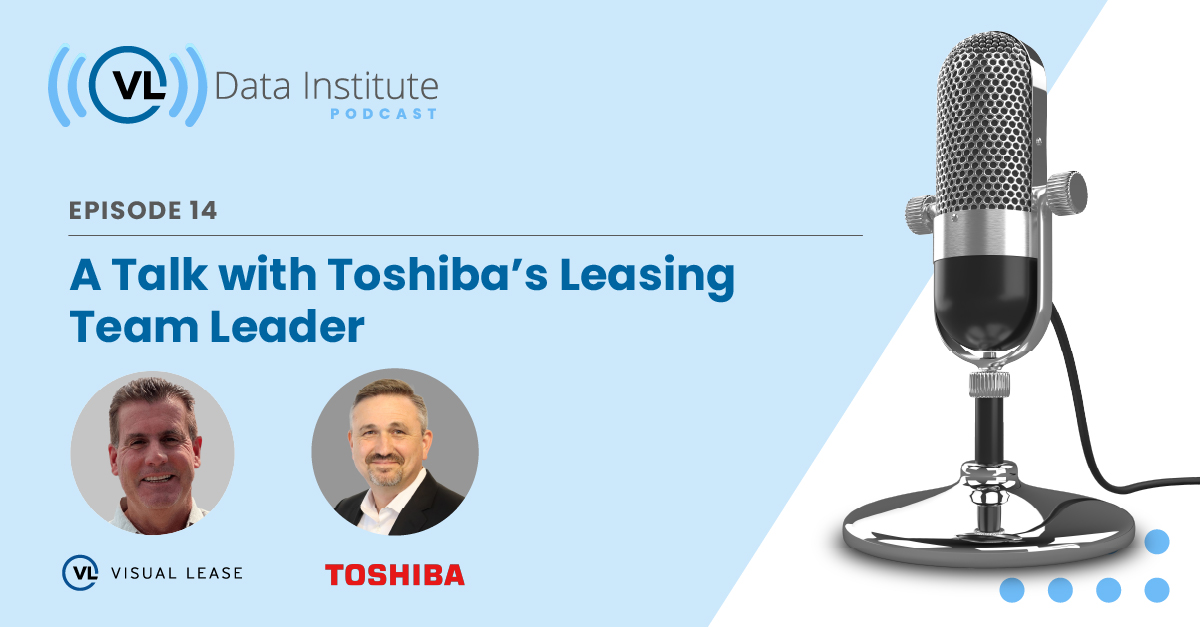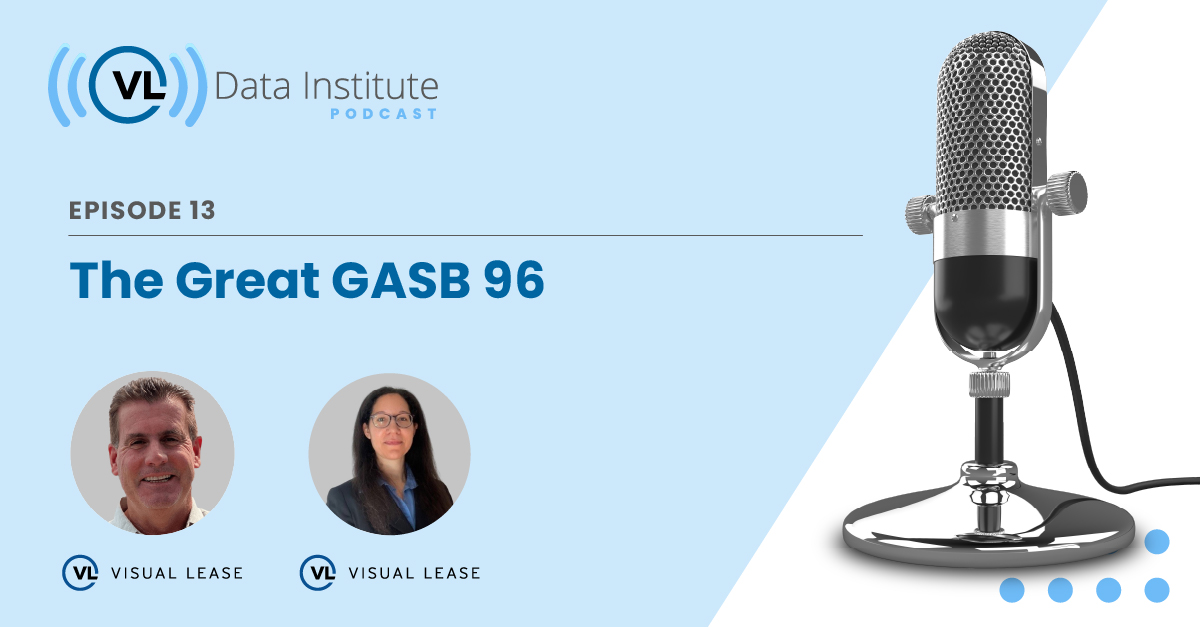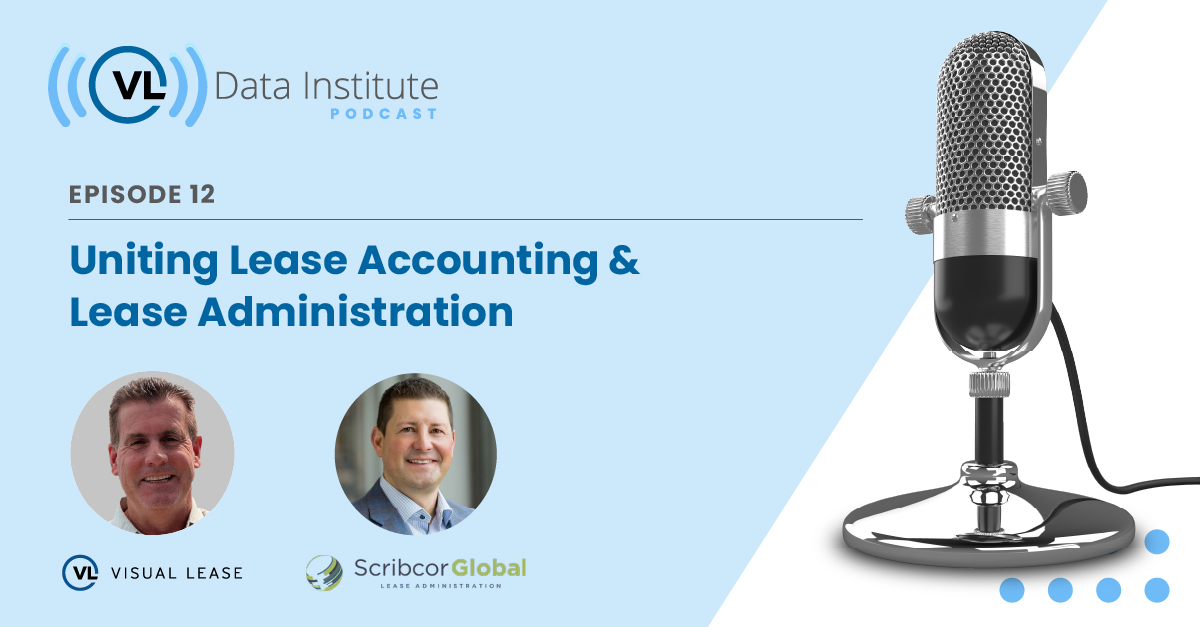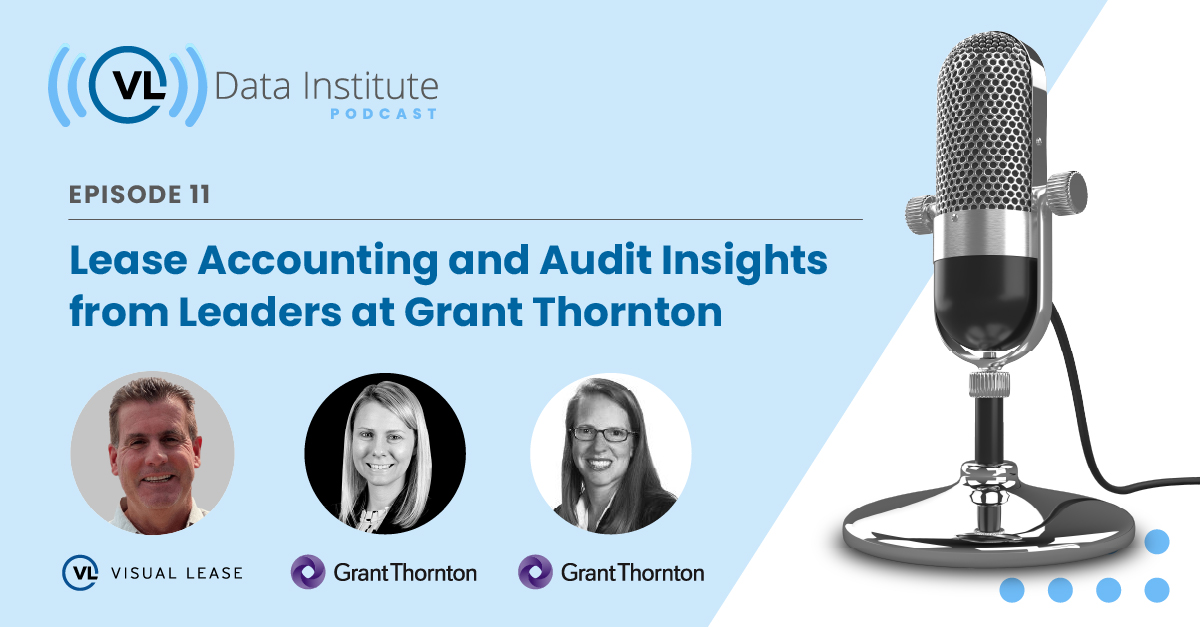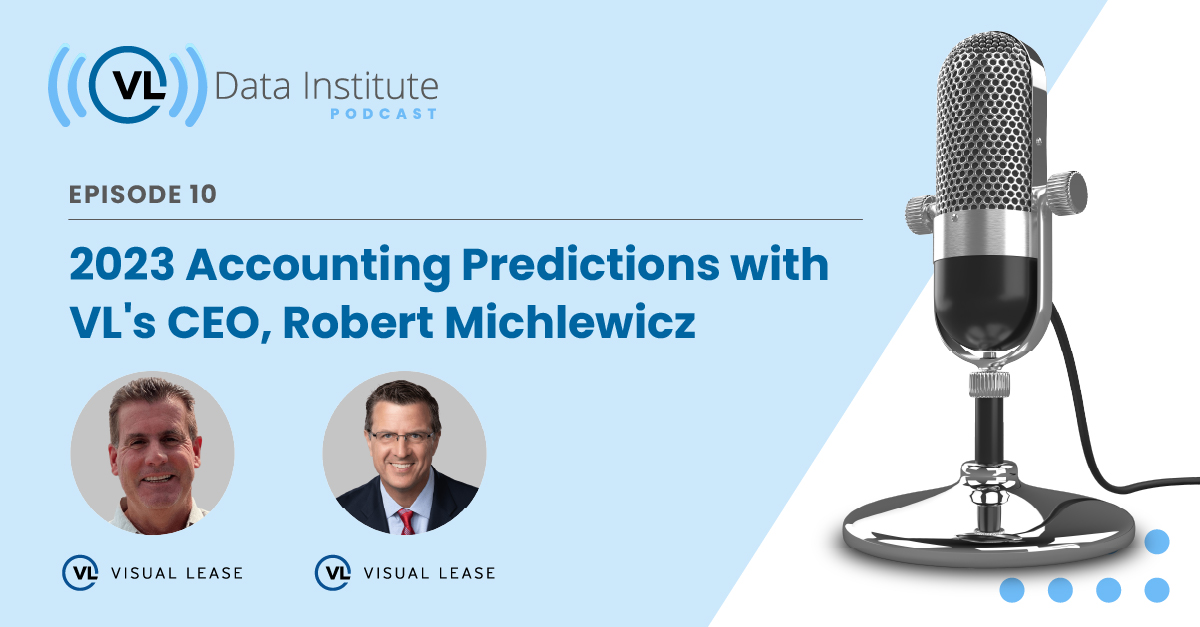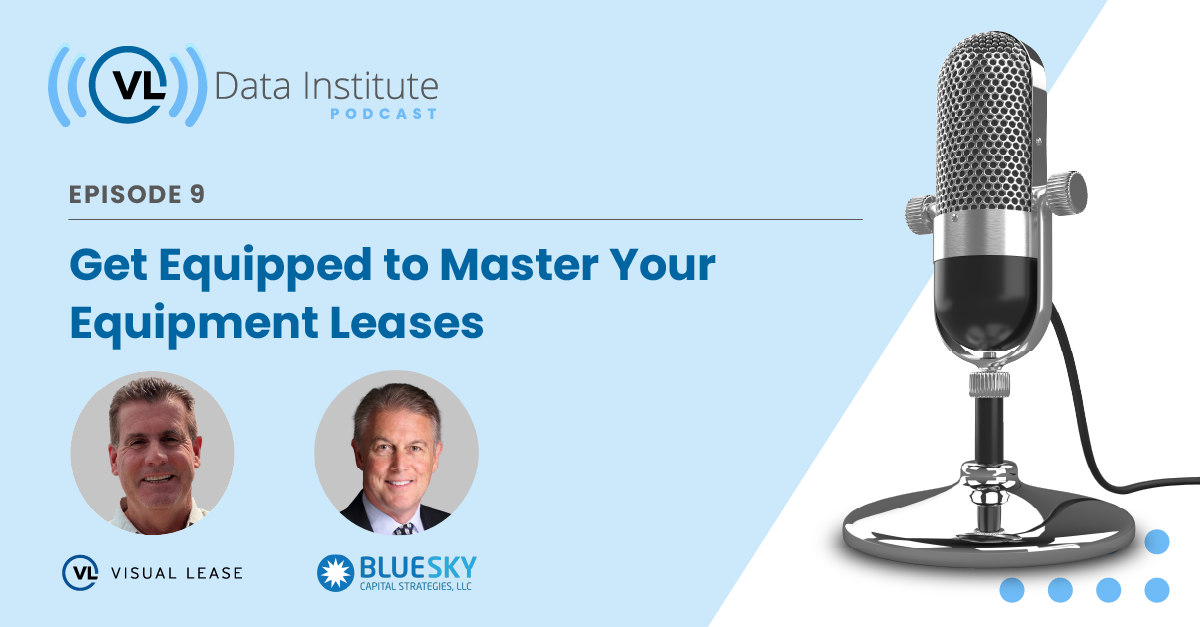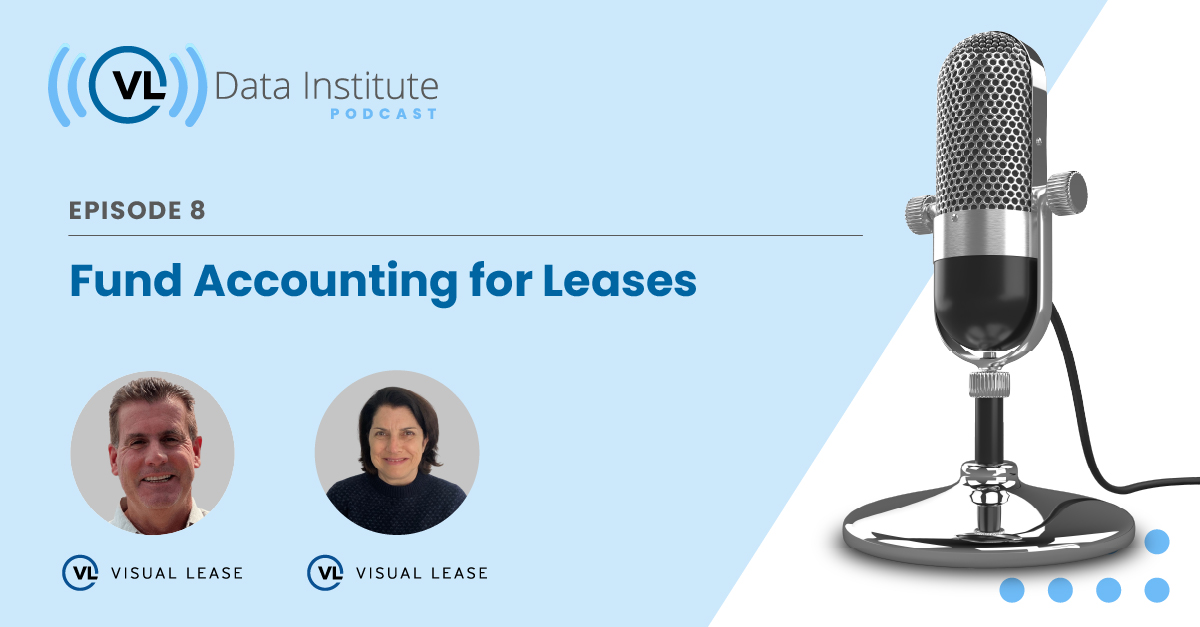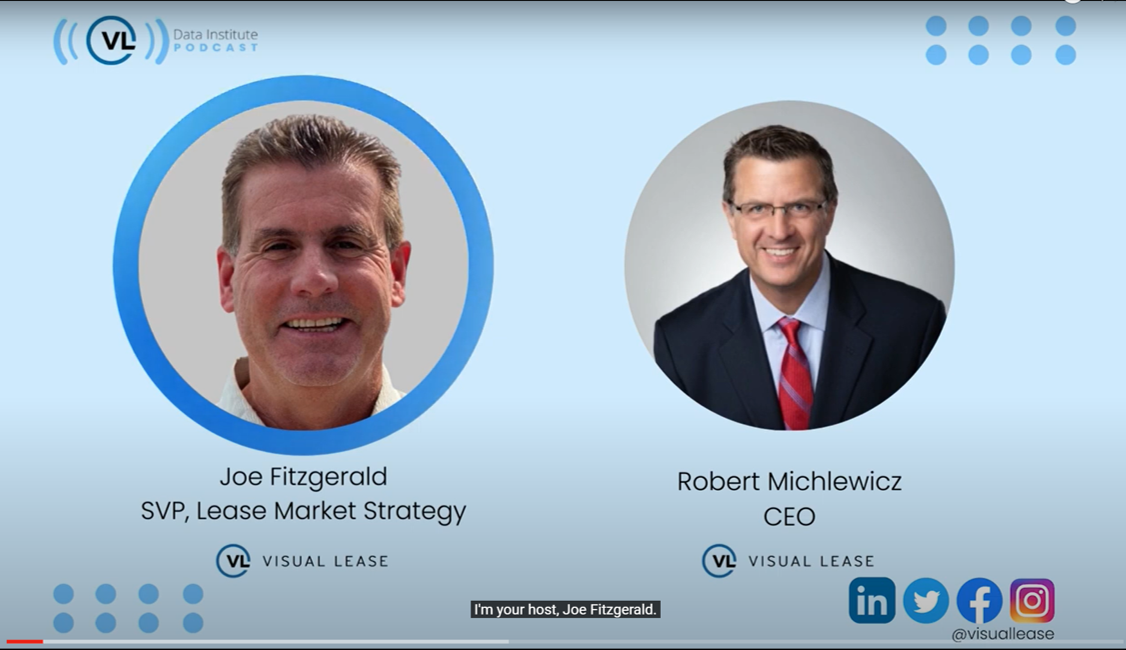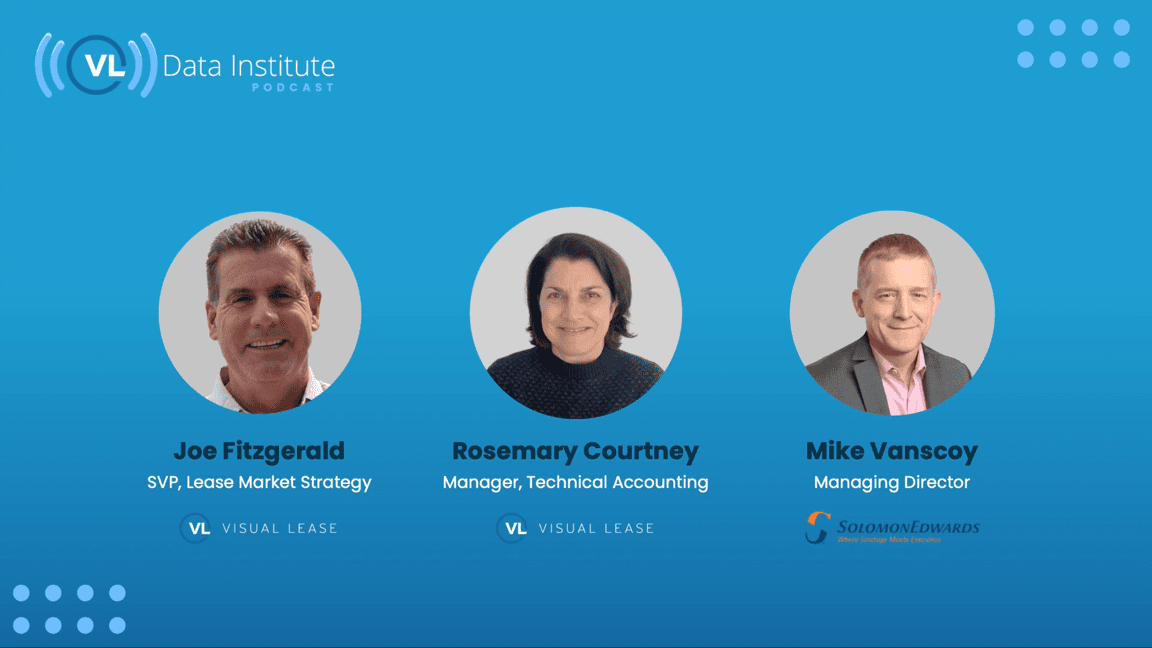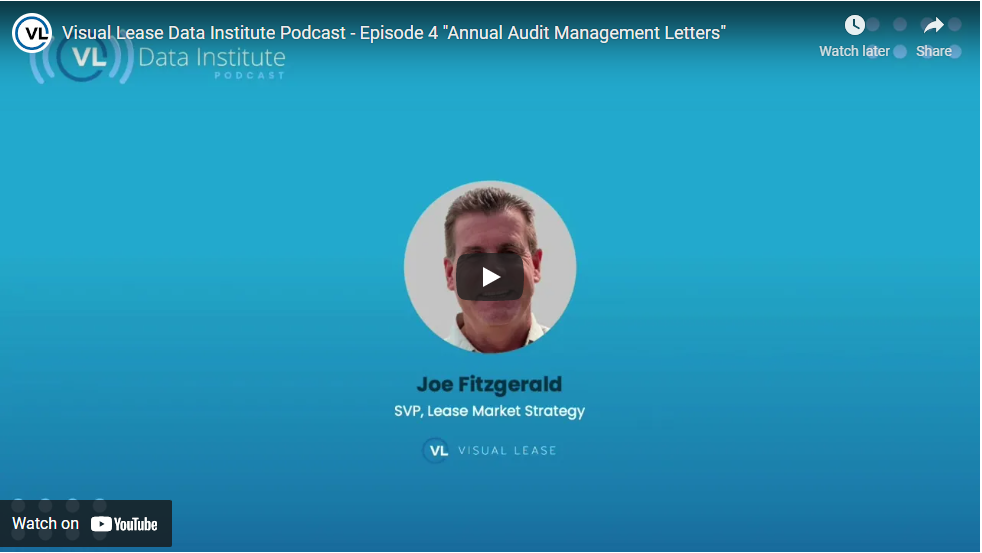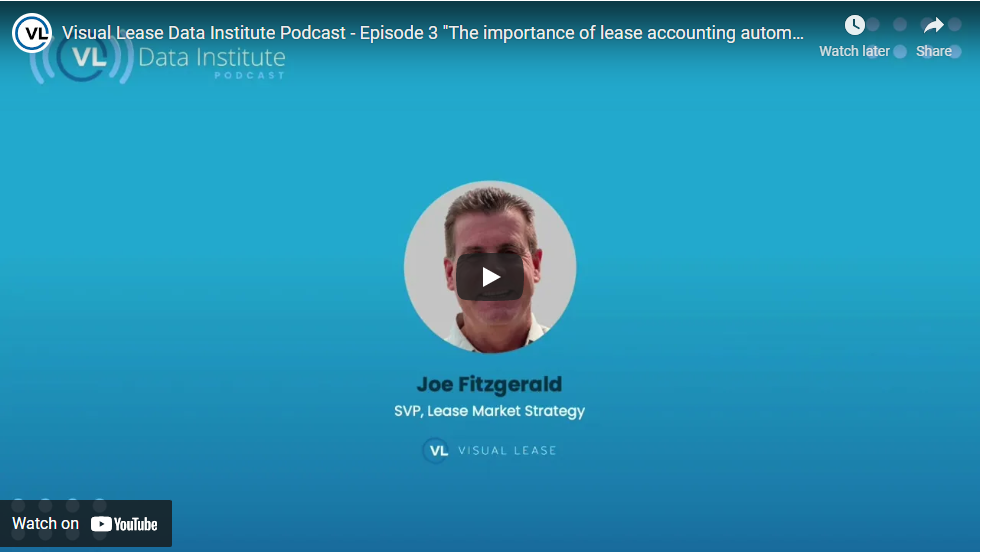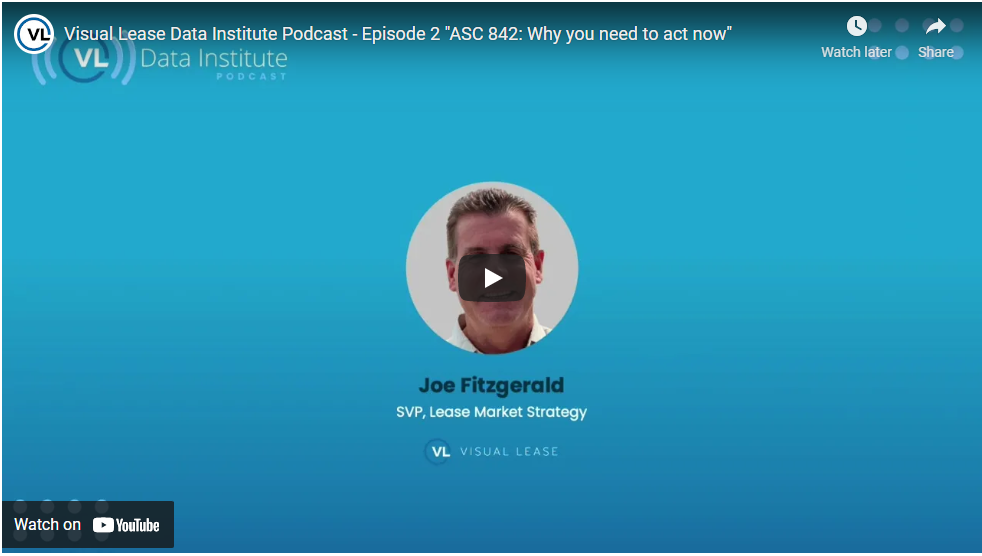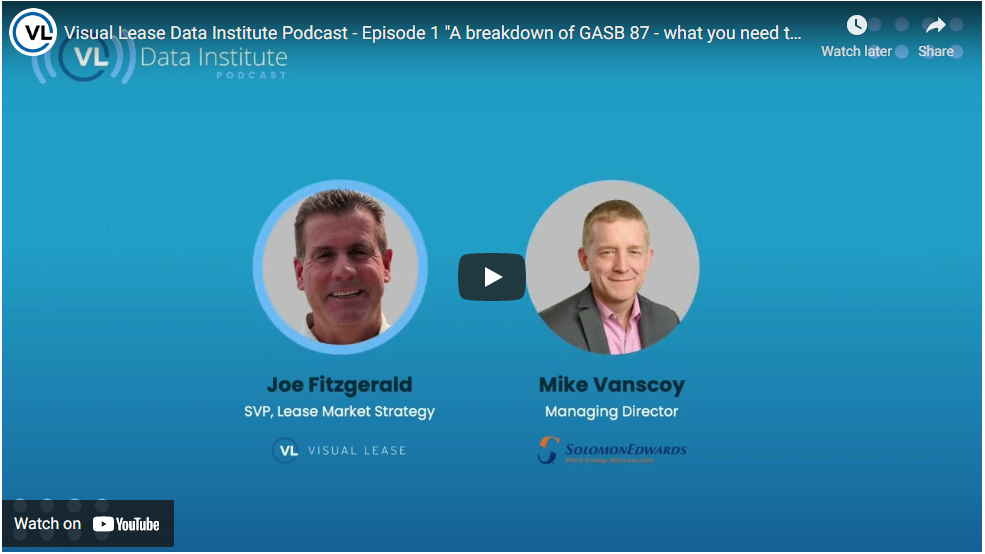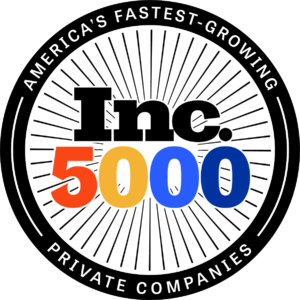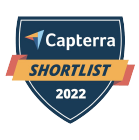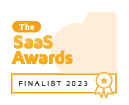Visual Lease CEO, Robert Michlewicz, sat down with Joe Fitzgerald, SVP of Lease Market Strategy at VL, to share his thoughts and takeaways on the newest report from The Visual Lease Data Institute, 2022 Lease Market Analysis: Lease Accounting Readiness.
Read Transcript
VLDI Podcast Episode 6 Transcript
Joe:
Hi. Welcome back to the Visual Lease Data Institute podcast. I’m your host, Joe Fitzgerald. We have a very special guest with us today. Please welcome none other than Visual Lease’s newly appointed CEO, Robert Michlewicz. As CEO of Visual Lease, Robert is responsible for ensuring operational excellence and sustained company growth. He oversees our corporate strategy, product engineering, marketing, sales, customer service and G.A. functions.
Robert brings over two decades of experience in the financial technology sector to Visual Lease. I’ve asked Robert to join us here today to discuss the newest research from the Visual Lease Data Institute, which was published in July 2022. So let’s jump right in. Hello and welcome, Robert. Thanks for joining us. So, Robert, can you first explain what the Visual Lease Data institute is?
Robert:
Sure, Joe. The Visual Lease Data Institute is a collection of market leading data trends and insights on lease accounting, management and optimization, created and curated by our team. It was created to arm the business with the knowledge required to achieve and maintain lease accounting compliance and leverage their leases at strategic business assets. Given this level of expertise, it’s been cited in some of your favorite publications, including The Wall Street Journal, Forbes, Reuters, Accounting Today, Globe Street and others.
Joe:
That’s great. Now, tell me about the newest report from the VLDI.
Robert:
Sure. To compile the findings of the report, we surveyed 200 senior finance and accounting professionals at companies with more than 1000 employees, as well as 100 financial management professionals at local, state and federal government entities. Within the research, industry leaders from Visual Lease and other organizations such as RSM, On Q Financial and Indeed, breakdown common challenges and roadblocks experienced by the private company and government markets.
As well as the many benefits of strong lease controls in accounting and how organizations can leverage lease accounting to make faster, smarter decisions.
Joe:
That’s interesting. What are some of the common lease accounting challenges that were highlighted in the findings?
Robert:
There is actually several competing business concerns that are impacting the adoption of the lease accounting standards for both private companies and government entities, including talent shortages and retention issues. In fact, 93% of private companies say their team is already stretched thin, making the transition to compliance with ASC 842 even more overwhelming. Also, nearly 40% cite concerns over employee burnout as they face the work required to achieve proper lease controls and accounting across the portfolio.
Similarly, 86% of government entities say their team is already stretched thin, making the transition to compliance with GASB 87 even more overwhelming. Once compliant, there’s the issue of keeping up with sustained compliance. 33% of private companies ranked knowledge maintenance as a top obstacle to overcome throughout their lease accounting process. Similarly, 31% of government entities ranked knowledge maintenance as a top obstacle that they, too had to overcome throughout their lease accounting process.
Among other concerns and obstacles are the ongoing effects of the pandemic, facilitating interdepartmental collaboration and coordination and the development of new processes, policies and controls.
Joe:
So how can organizations overcome these challenges?
Robert:
Well, because there’s so many moving parts and pieces when it comes to proper lease accounting and administration, having a centralized system of record greatly changes the way a firm organizes and maintains control over their leases while creating many efficiencies along the way. In fact, both private companies and government entities have reported that third party lease accounting software has helped them do several things, including the following first, replace and streamline essential manual tasks and improve accuracy through automation.
Also keeping employees aware of rules and regulations. And introducing a new level of customer service and support available to their internal teams while reducing the risk of misreporting company lease information. Because of these many advantages, private companies were able to save an average of 600 hours. And public sector entities were able to save 765 hours by using third party lease accounting software.
It’s important to note that when picking a solution, you should prioritize one that has strong customer support. Because we also found that 30% of private companies and nearly 40% of government entities reported adopting new technologies as a leading obstacle in their lease accounting projects. This is why at Visual Lease we’re dedicated to helping our customers throughout the entire implementation process and beyond to ensure they’re getting the maximum value out of our software and services.
Joe:
Robert, these are great insights. Any closing thoughts?
Robert:
Yes, really appreciate you having me today, Joe. It was great to share just a few snippets from our newest report. And if you’re interested in checking out all that Visual Lease Data Institute has to offer, you can find it under the Insights tab on the Visual Lease website.
Joe:
That will conclude today’s episode of the VLDI podcast. If you enjoyed this episode, be sure to follow our LinkedIn, Twitter, Instagram and Facebook pages @visuallease. And don’t forget to tune into the next episode of the Visual Lease Data Institute podcast, where our focus is on helping you and your company transform your lease accounting compliance requirements into financial opportunities.











